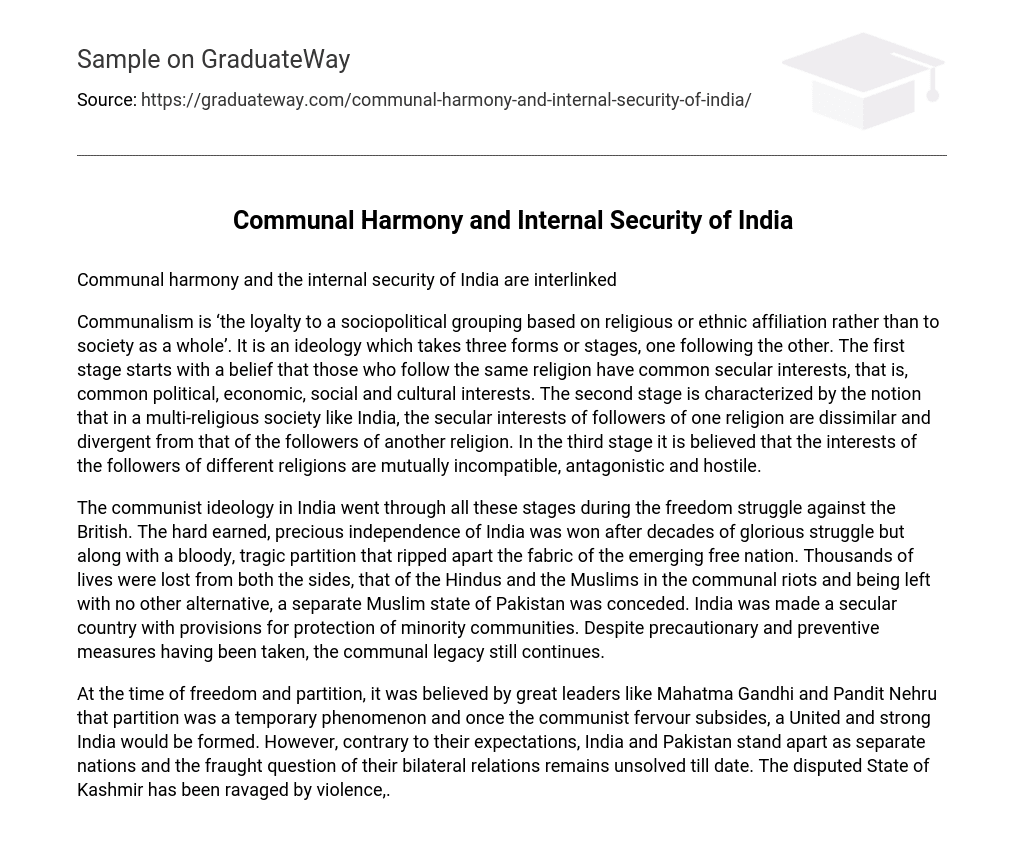Communal harmony and the internal security of India are interlinked
Communalism is ‘the loyalty to a sociopolitical grouping based on religious or ethnic affiliation rather than to society as a whole’. It is an ideology which takes three forms or stages, one following the other. The first stage starts with a belief that those who follow the same religion have common secular interests, that is, common political, economic, social and cultural interests. The second stage is characterized by the notion that in a multi-religious society like India, the secular interests of followers of one religion are dissimilar and divergent from that of the followers of another religion. In the third stage it is believed that the interests of the followers of different religions are mutually incompatible, antagonistic and hostile.
The communist ideology in India went through all these stages during the freedom struggle against the British. The hard earned, precious independence of India was won after decades of glorious struggle but along with a bloody, tragic partition that ripped apart the fabric of the emerging free nation. Thousands of lives were lost from both the sides, that of the Hindus and the Muslims in the communal riots and being left with no other alternative, a separate Muslim state of Pakistan was conceded. India was made a secular country with provisions for protection of minority communities. Despite precautionary and preventive measures having been taken, the communal legacy still continues.
At the time of freedom and partition, it was believed by great leaders like Mahatma Gandhi and Pandit Nehru that partition was a temporary phenomenon and once the communist fervour subsides, a United and strong India would be formed. However, contrary to their expectations, India and Pakistan stand apart as separate nations and the fraught question of their bilateral relations remains unsolved till date. The disputed State of Kashmir has been ravaged by violence,.





